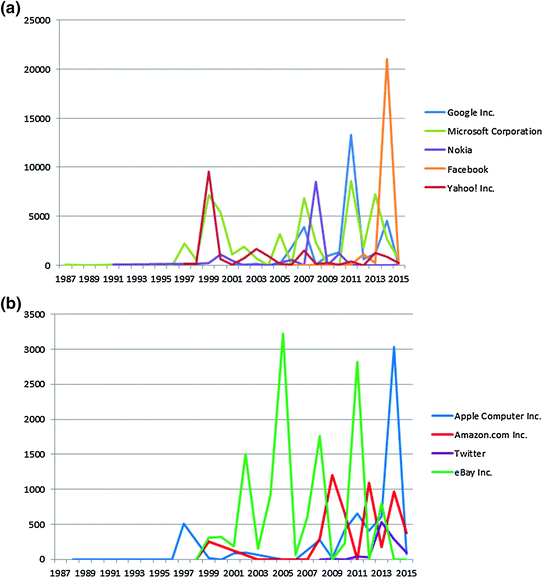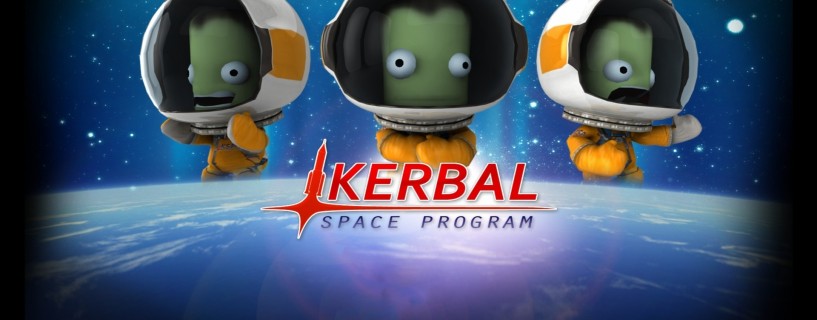- Game 43: March 27 2015 The Initials Game Show
- Game 43: March 27 2015 The Initials Game 6
- Game 43: March 27 2015 The Initials Games
Game 1: Thu, April 18: New Orleans Buccaneers: 112 @ Pittsburgh Pipers: 120: Game 2: Sat, April 20: New Orleans Buccaneers: 109 @ Pittsburgh Pipers: 100: Game 3: Wed. March 24, 1936 - Detroit 1, Montreal Maroons 0, semifinal, 116 minutes, 30 seconds, Mud Bruneteau. April 3, 1933 - Toronto 1, Boston 0, semifinal, 104:46, Ken Doraty. March 27, 2015 Fight for the future of football in Inazuma Eleven GO Chrono Stones: Wildfire and Thunderflash on Nintendo 3DS and 2DS, as the Raimon Jr. High team thrust themselves into a time-bending RPG, where new armourfied Fighting Spirits, new characters, and new footballing adventures await. According to TRSTS reports, three of the top five best-selling games in the U.S. For December 1996 were Nintendo 64 games (both of the remaining two were Super NES games). Super Mario 64 is the best selling game of the generation, with 11 million units sold 85 beating the PlayStation 's Gran Turismo (at 10.85 million 86 ) and Final Fantasy. There are currently 3093 games across both this page (A to L) and the remainder of the list from M to Z. For a chronological list, click the sort button in any of the available region's column. Games dated December 3, 1994 (JP), September 9, 1995 (NA), September 29, 1995 (EU), and November 15, 1995 (AU) are launch titles of each region.
As new technologies, tools and toys have burgeoned over the last 20 years so has our understanding of what literacy is and can be. Knowledge of what it takes to be an active and engaged participant in society, community and life has changed; with these changes have come changes in how libraries understand, promote and support literacy.
Libraries of all types have provided collections, programs and services in support of these traditional literacy skills for centuries since their inception. Today, ideas of what literacy is include digital, information and communication technology (ICT), media, programming, and visual. Many of these specific types of literacy fall into a wider-ranging category of 21st century literacy. Reading and understanding information is still vital, but so is evaluating and thinking critically in order to draw conclusions and make informed decisions. In all these literacies, users are required to consider these factors, producing new knowledge from their informed conclusions and sharing that new knowledge with their communities.
Llibraries of all types promote the development of these literacy skills in numerous ways: information literacy classes in colleges and universities, gaming programs to promote problem solving and the development of higher order thinking skills, and other services that improve technical and literary fluency. Regardless of the type of service libraries may provide, they are all important in strengthening these multiple literacies. Gaming in its' various forms present an additional service that supports and strengthens these literacies.
It’s up to you to decide how your library’s gaming programs reflect these ideas of literacy. Does playing console games allow youth to develop collaborative problem solving skills, part of the 21st century skill set? Do your board game events allow players to engage in higher order thinking on a regular basis? Will allowing youth to run gaming tournaments build leadership skills? Does playing Pictureka® or I Spy® develop players' visual literacy? Do game creation programming build technical fluency with digital tools? How do your video and board game activities enhance the development of media literacy? Do your gaming programs for older adults allow them to develop key technology literacy?
There is no doubt that gaming and literacy go hand-in-hand. If you can’t read, you can’t play. Games come with instructions, menus, and more. Learning the language and mechanics of any game, from Chess to Little Big Planet, involves acquiring a new vocabulary. More examples follow.
- Some card games, like Pokemon, require deciphering the academic language of if/then clauses to determine the outcome of the battles that ensue when cards are played.
- Dungeons & Dragons comes with three tomes that serve as guides gameplay. Referring to these core manuals, as a player or gamemaster, depends heavily on information literacy skills; while the gameplay is focused on telling a story filled with conflict. Additionally, there is great deal of math involved in D&D: reading the dice, distributing attributes as players complete character sheets, adding and multiplying damage during combat, and understanding statistics and probability. For more information, check out Dungeons & Dragons Afternoon Adventures.
- Many authentic, modern board games such as 1960: the Making of a President, Settlers of Catan, and even Pictureka! provide a learning environment that presents a variety of new challenges, supports creative problem solving, and provides support for overcoming failure. All of these skills can be linked to national standards for student achievers. For more information, check out the Genesee Valley BOCES training on using modern board games in the library.
- To play DDR or Guitar Hero, players must be able to read the screen to set up the game and choose a song to play. There is on-screen reading during the gameplay, as steps and progress are rated. There is evenevidence to suggest that rhythm games like DDR a Hero improve reading skills of ADHD students. Matching movements to visual and rhythmic auditory cues, DDR may strengthen neural networks involved in reading and attention and thereby improve student outcomes. For more information, check out DDR/Guitar Hero Tournaments.
- Fantasy sports players apply information literacy skills when playing. The goal of fantasy football is to create a roster each week in pursuit of the greatest statistical production so that when you compete head-to-head against another participant, your team will produce a win. All of this requires players to practice strong research, critical thinking and communication skills in order to succeed. Fantasy sports activities also include identifying a variety of information formats, evaluating and refining search results, applying criteria to determine the bias and credibility and creating new knowledge. For more information, check out Information Literacy through Fantasy Football.
- Finally, game design activities both encompass and look well beyond the forms of literacy that are defined by existing school and library standards, combining computational fluency, mathematics, logic, storytelling, sound and graphic design (with their implicit elements of symbology and user-orientation), systems concepts and information management, among other disciplines. For more information, check out Game Design, Game Maker Academy or Digital Arts Workshops.
Listed below are some of the newer conceptions of literacy, websites listed provide more detailed information on what these skills are and why they are important in helping people to be engaged members of society.
21st Century Literacy
21st Century Literacy is the ability to use a range of tools and skills (technological, interpersonal, communication) to effectively participate in the workforce
AASL. Standards for the 21st Century Learner. AASL, 2008. http://www.ala.org/ala/mgrps/divs/aasl/aaslproftools/learningstandards/standards.cfm The American Association of School Librarians document on the ability to use a range of tools and skills (technological, interpersonal, communication) to effectively participate in the workforce.
ALA Information Literacy Wiki. http://wikis.ala.org/professionaltips/index.php/Information_Literacy. March 27, 2015. Contains resources for all types of libraries on information competency or fluency.
ACRL Information Literacy. http://www.ala.org/acrl/issues/infolit/old. March 27, 2015. ACRL Information Literacy website is a gateway to resources on information literacy.
Digital Directions. http://www.edweek.org/dd/articles/2009/01/21/03techlit.h02.html. March 27, 2015. Provides an overview of literacy in the 21st century.
NCTE. The NCTE Definition of 21st Century Literacies. NCTE, 2013. http://www.ncte.org/positions/statements/21stcentdefinition. March 27, 2015. The National Council of Teachers of English position statement on 21st century literacy includes technlogy proficiency and working with multimedia among other skills.
NoodleTools on 21st Century Literacy. Noodle Tools, 2008. http://www.noodletools.com/debbie/literacies/. March 27, 2015. Provides overview of skills needed to locate, retrieve, assess and use information
Visual Literacy
Visual literacy is the ability to interpret, assess, process and make meaning from visual images such as photographs, charts, graphs, and video.
Baker, Frank. Visual Literacy. 2008.http://www.frankwbaker.com/vl_defined.htm. March 27, 2015. Visual literacy definition.
International Visual Literacy Association. http://www.ivla.org/. March 27, 2015. An organization dedicated to research study and publication of visual literacy.

Visual Literacy. Wikipedia. 2009. http://en.wikipedia.org/wiki/Visual_literacy Article on visuacy.
Media Literacy
Media literacy is the ability to critically assess messages presented by media outlets such as newspapers, blogs, television shows, movies

Game 43: March 27 2015 The Initials Game Show
Center for Media Literacy. http://www.medialit.org/. Center for Media Literacy, 2008. March 27, 2015. Best practices, resources and lesson plans for media literacy.
Media Literacy Project. http://medialiteracyproject.org/ March 27, 2015. Resources for advancing media education.
PBS Teachers: Media Literacy. PBS, 2009. http://www.pbslearningmedia.org/. March 27, 2015. Resources for teachers, including activities related to PBS shows. Information, Communication, Technology (ICT) Literacy Information, Communication and Technology (ICT) Literacy is the ability to learn and use software and hardware to communicate knowledge and ideas.
ICT Digital Literacy Portal. Lempster Group, 2008. http://www.ictliteracy.info/. March 27, 2015. This website represents a global partnership among leading business, education, and public policy stakeholders to promote universal ICT Digital Literacy.
Programming Literacy
Game 43: March 27 2015 The Initials Game 6

Programming Literacy is the ability to understand and applying programming principles to create change in technology.
Other games. Edutopia. Programming: The New Literacy. The George Lucas Foundation, 2008. http://www.edutopia.org/programming-the-new-literacy. March 27, 2015. Success stories about what works in public education.
Multimodal Literacy
Multimodal Literacy is the ability to understand and interpret the same information presented in multiple formats.
Game 43: March 27 2015 The Initials Games
National Council of Teachers of English. http://www.ncte.org/positions/statements/multimodalliteracies. March 27, 2015. National Council of Teachers of English position statement on multimodal literacy.
Science Literacy
Science Literacy is the ability to understand and be fluent in the nature of science and scientific methods.
National Science Digital Library. NSDL Science Literacy Maps. The National Science Digital Library, 2009. http://strandmaps.nsdl.org/. January 27, 2009. Tools for teachers and students to find resources that relate to specific science and math concepts.

Technology Literacy
Technology Literacy is the ability to use the tools of creation and communication, such as computers, cell phones, MP3 players and more.
ISTE. National Education Technology Literacy Standards. ISTE, 2009. http://www.iste.org/standards. March 27, 2015. Standards to test proficiency, knowledge, skills, and attitudes needed to succeed in today’s Digital Age.
ITEA. Technology Literacy Standards. ITEA, 2005. http://www.iteaconnect.org/TAA/Publications/TAA_Publications.html. January 27, 2009. Provides technological literacy standards by the International Technology Education Association.

Initials: S.S.
Host: Cory Cove (Clues written by Paul Charchian)
Players: Chris Hawkey, Paul Lambert, AJ Mansour, Ben Leber
| Item | Name | Correct | Clues | Incorrect |
|---|---|---|---|---|
| 1 | Sarah Silverman | Chris Hawkey | 2 | – |
| 2 | Sean Salisbury | Paul Lambert | 5 | Ben Leber |
| 3 | Slap Shot | AJ Mansour | 3 | – |
| 4 | Stuart Smalley | Chris Hawkey | 6 | Paul Lambert |
| 5 | Shamrock Shake | AJ Mansour | 5 | – |
| 6 | Steven Spielberg | Paul Lambert | 5 | Ben Leber |
| 7 | Sesame Street | Chris Hawkey | 4 | Paul Lambert |
| 8 | Sammy Sosa | Ben Leber | 1 | – |
| 9 | Stuart Scott | Paul Lambert | 2 | – |
| 10 | SpongeBob SquarePants | Chris Hawkey | 2 | – |
| 11 | Steven Seagal | AJ Mansour | 2 | – |
| 12 | Sam Smith | Paul Lambert | 2 | – |
| TB | Sharon Stone | Paul Lambert | – | Chris Hawkey |
| Place | Player | ✔ | ✘ | 1C | 2C | 3C | BF |
|---|---|---|---|---|---|---|---|
| 1 | Paul Lambert | 5 | 1 | – | 2 | – | – |
| 2 | Chris Hawkey | 4 | 1 | – | 2 | – | – |
| 3 | AJ Mansour | 3 | – | – | 1 | 1 | – |
| 4 | Ben Leber | 1 | 2 | 1 | – | – | – |
| Notes & Quotes |
|---|
| Lee Valsvik, in the background after the first item: “Sweet! Sweet! Sweet!” |
| Meatsauce, sarcastically: “These are great clues.” Cory: “You know what, thanks. My favorite game of Initials was last week.” Meatsauce: “I hope an elevator falls on you.” Cory: “Why would I be in the elevator shaft waiting for an elevator to fall on me?” Meatsauce: “Any shaft, you’re in.” Cory: “I’m in it?” |
| Hawk: “I think the key is to not be sure.” |
| Hawk, after Leber got Item No. 8 with one clue: “You were sitting on that one. I saw you sitting a little sideways there.” |
| Hawk, after he tied with Meatsauce for the lead: “Just like old times.” Meatsauce: “Remember, who ever loses between us has to kiss.” |
| Hawk, before the tiebreaker: “Golly gee. I really want to win. I mean, really, really want to win.” Meatsauce: “I want you to win.” Cory: “You want Chris to win?” Meatsauce: “Yeah, I don’t… Being the— AJ: “Just stop.” Meatsauce: “—arrogant A-word sucks.” Cory: “Turn the mic off and leave then. Just let him win.” Meatsauce: “No, I mean, I gotta give effort. This is the only thing I’m good at.” |
| Hawk buzzed in first on the tiebreaker but incorrectly guessed Sally Struthers. After the game, Hawk repeated solemnly, “I gave it away.” |
| Hawk: “Oh god, I wanted that so badly.” Meatsauce: “Yeah, well, you didn’t.” Hawk: “You know what? Here he is.” Meatsauce: “Hey, I won, right?” Leber: “Yeah, you’re not gracious when you win or lose.” AJ: “Yeah, the person you didn’t want to become, you are.” Meatsauce: “You guys bring it out in me. You guys are sore losers.” Leber: “No, we didn’t do anything!” Meatsauce: “You’re sore losers!” [Laughter.] Hawk: “Am I eating these G-D beans or am I just tickling them?” |
[Stats legend]
